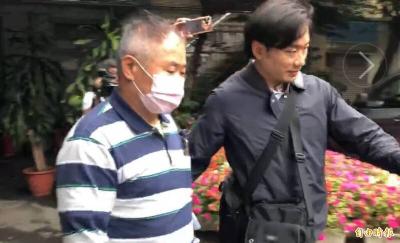Autonomous vehicles are in the spotlight, although officials expect few roadblocks when investigating crashes involving such vehicles, the Transportation Safety Board said on Wednesday as it launched a safety study.
At a session of the legislature’s Transportation Committee, Democratic Progressive Party legislators Lee Kun-tse (李昆澤) and Chen Ou-po (陳歐珀) asked board chairman Young Hong-tsu (楊宏智) whether Taiwan has a mechanism to regulate autonomous vehicles and prevent crashes involving them.
Lee asked whether the board has the technology and resources to investigate such crashes, as autonomous vehicles are very different from standard gas or electric vehicles.
The government lacks comprehensive regulations for driverless vehicles, Chen said, adding that the board is also keen to help establish a disaster-prevention mechanism to address battery fires in electric vehicles, including buses.
The development of autonomous and electric vehicles has triggered discussions worldwide about the hazards — potential and realized — they pose, he said, adding that the board in June discussed the issues with overseas experts in a videoconference.
“We have simulated how investigations should proceed into crashes involving autonomous vehicles, so we should have no problem completing such a task,” Young said.
“We also hope to be involved when the Ministry of Economic Affairs and the Ministry of Transportation and Communications conduct tests of autonomous vehicles,” he said.
The board would focus on studying autonomous vehicle safety in the next few years, as well as standard assembly methods for tour buses and the management of construction sites along railway lines, Young said.

Taiwan would benefit from more integrated military strategies and deployments if the US and its allies treat the East China Sea, the Taiwan Strait and the South China Sea as a “single theater of operations,” a Taiwanese military expert said yesterday. Shen Ming-shih (沈明室), a researcher at the Institute for National Defense and Security Research, said he made the assessment after two Japanese military experts warned of emerging threats from China based on a drill conducted this month by the Chinese People’s Liberation Army’s (PLA) Eastern Theater Command. Japan Institute for National Fundamentals researcher Maki Nakagawa said the drill differed from the

A fugitive in a suspected cosmetic surgery fraud case today returned to Taiwan from Canada, after being wanted for six years. Internet celebrity Su Chen-tuan (蘇陳端), known as Lady Nai Nai (貴婦奈奈), and her former boyfriend, plastic surgeon Paul Huang (黃博健), allegedly defrauded clients and friends of about NT$1 billion (US$30.66 million). Su was put on a wanted list in 2019 when she lived in Toronto, Canada, after failing to respond to subpoenas and arrest warrants from the Taipei District Prosecutors’ Office. Su arrived at Taiwan Taoyuan International Airport at 5am today on an EVA Air flight accompanied by a

A 79-year-old woman died today after being struck by a train at a level crossing in Taoyuan, police said. The woman, identified by her surname Wang (王), crossed the tracks even though the barriers were down in Jhongli District’s (中壢) Neili (內壢) area, the Taoyuan Branch of the Railway Police Bureau said. Surveillance footage showed that the railway barriers were lowered when Wang entered the crossing, but why she ventured onto the track remains under investigation, the police said. Police said they received a report of an incident at 6:41am involving local train No. 2133 that was heading from Keelung to Chiayi City. Investigators

The Keelung District Prosecutors’ Office today requested that a court detain three individuals, including Keelung Department of Civil Affairs Director Chang Yuan-hsiang (張淵翔), in connection with an investigation into forged signatures used in recall campaigns. Chang is suspected of accessing a household registration system to assist with recall campaigns targeting Democratic Progressive Party (DPP) city councilors Cheng Wen-ting (鄭文婷) and Jiho Chang (張之豪), prosecutors said. Prosecutors yesterday directed investigators to search six locations, including the Chinese Nationalist Party’s (KMT) Keelung office and the residences of several recall campaign leaders. The recall campaign leaders, including Chi Wen-chuan (紀文荃), Yu Cheng-i (游正義) and Hsu Shao-yeh